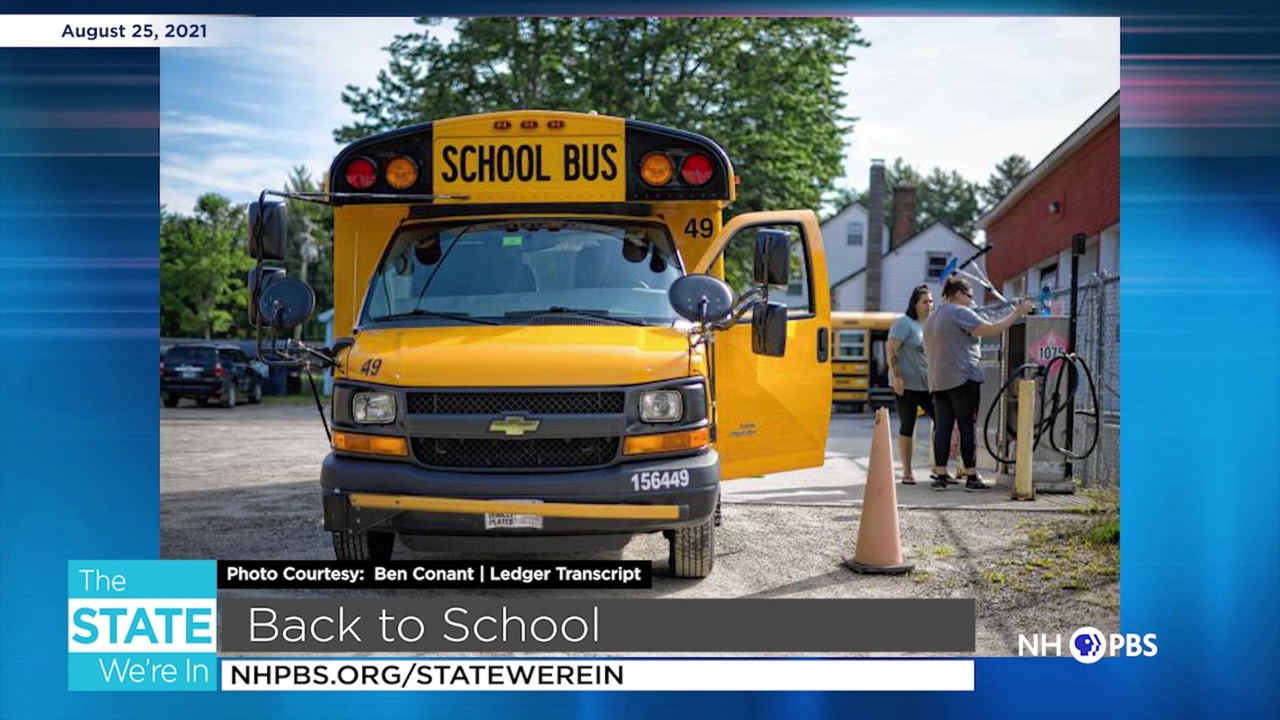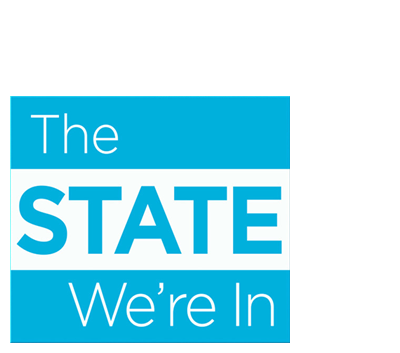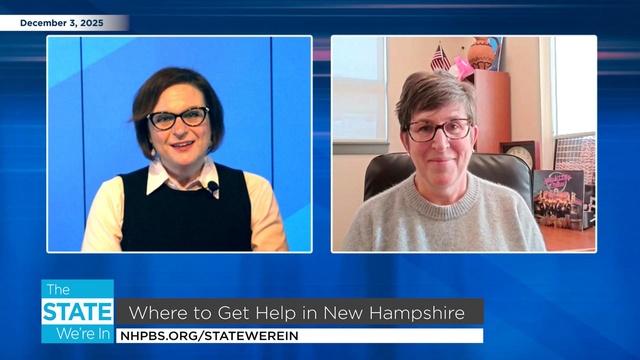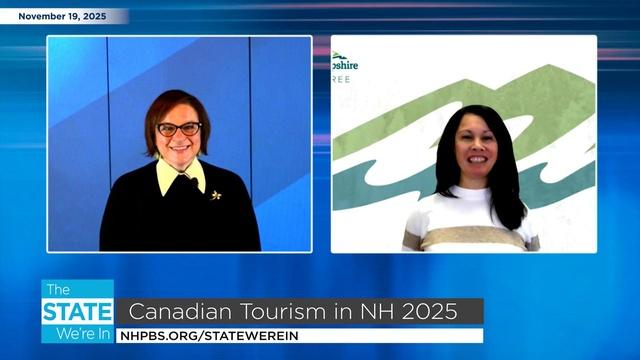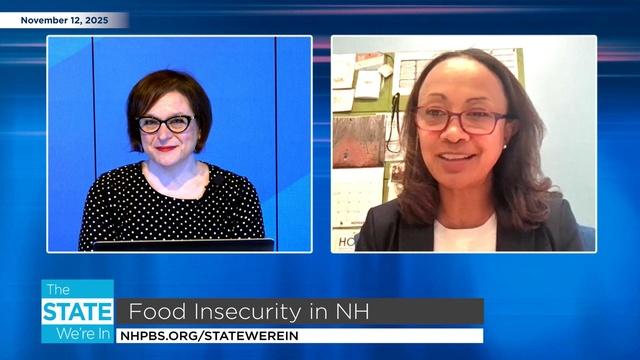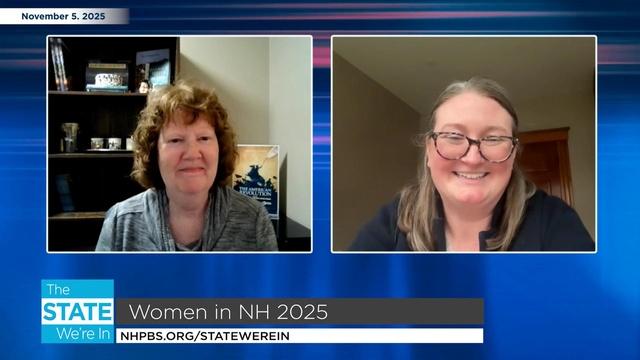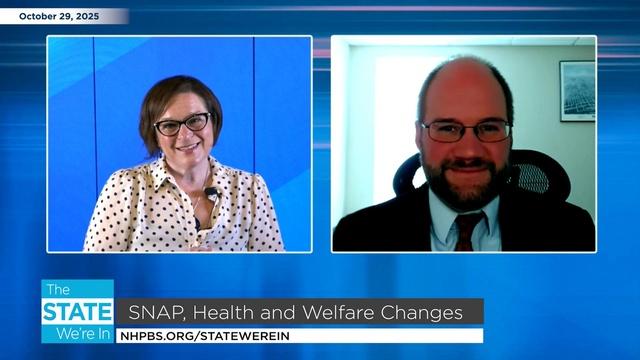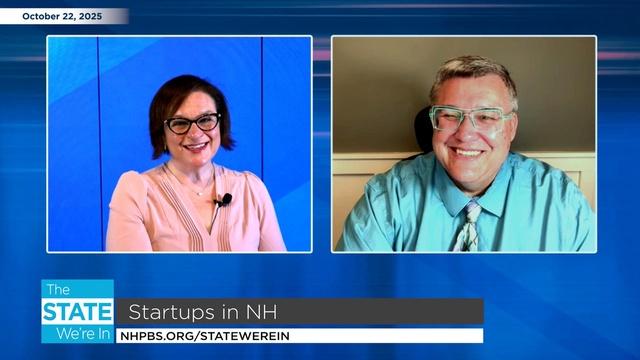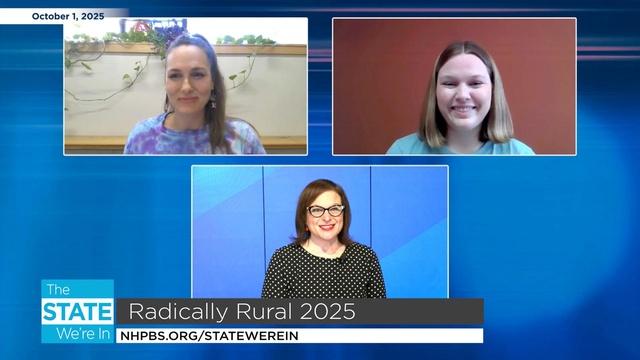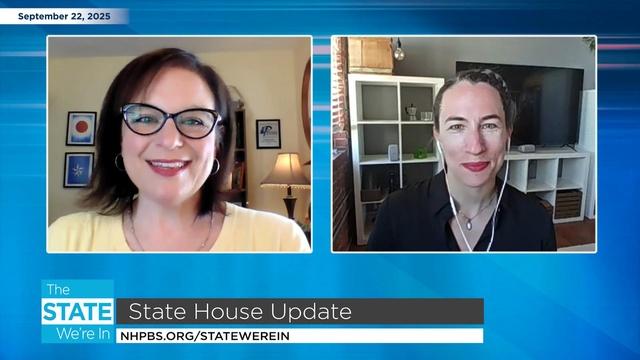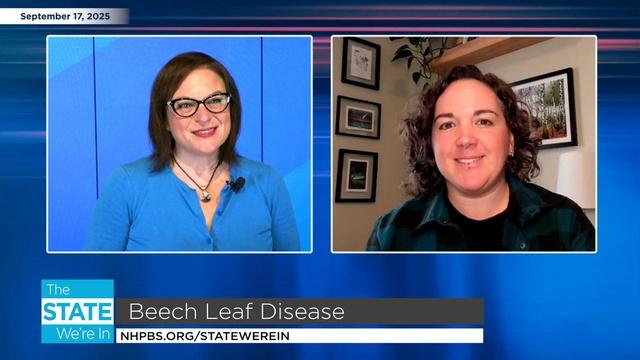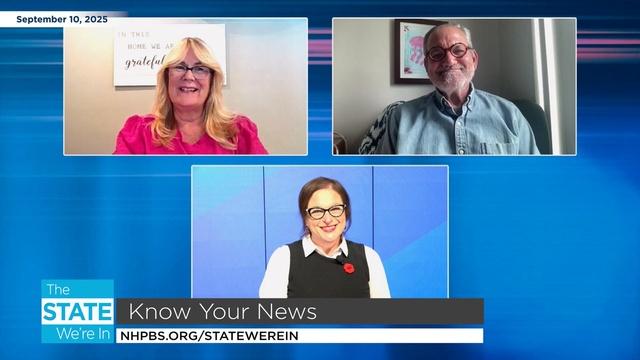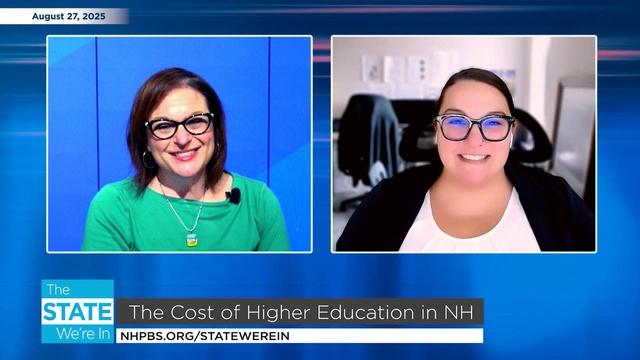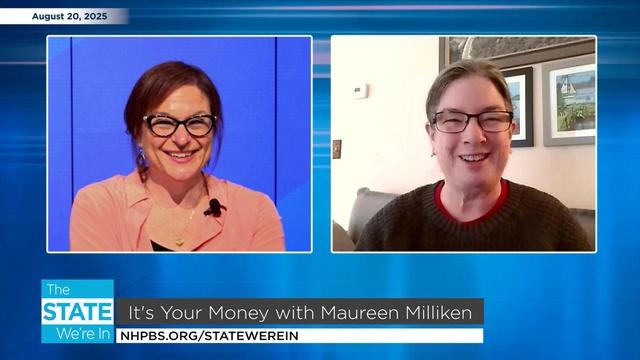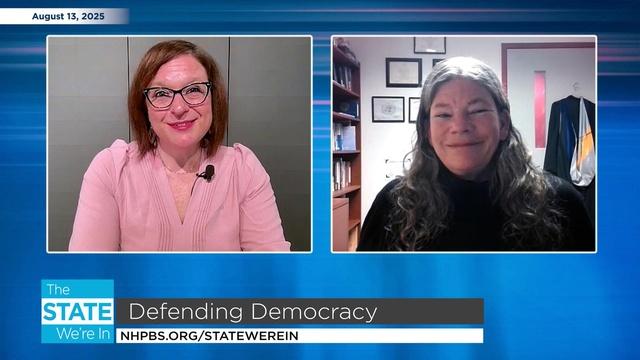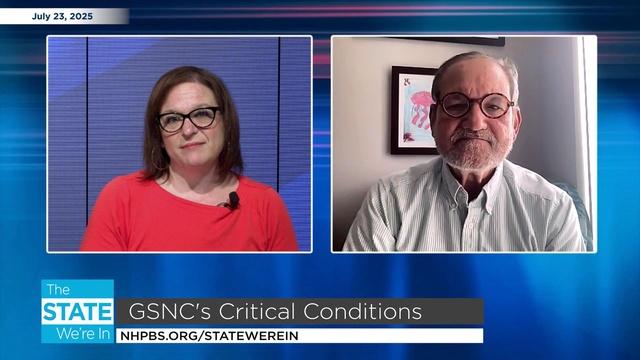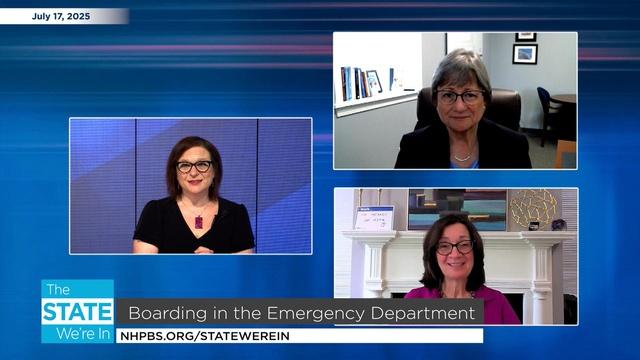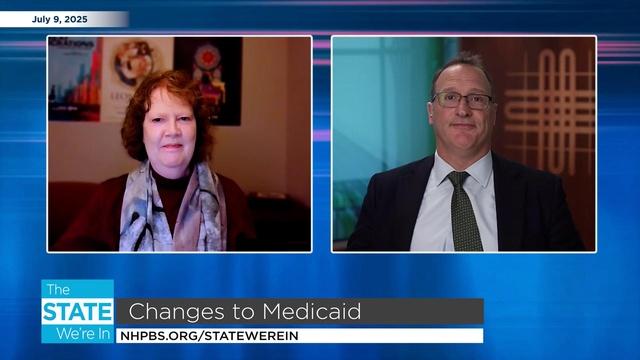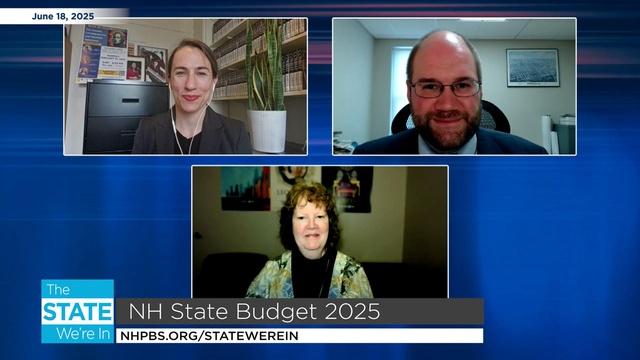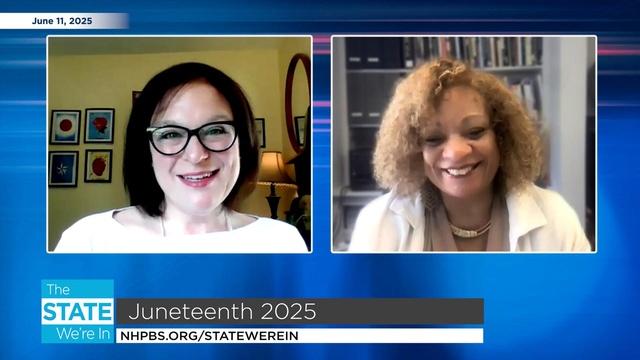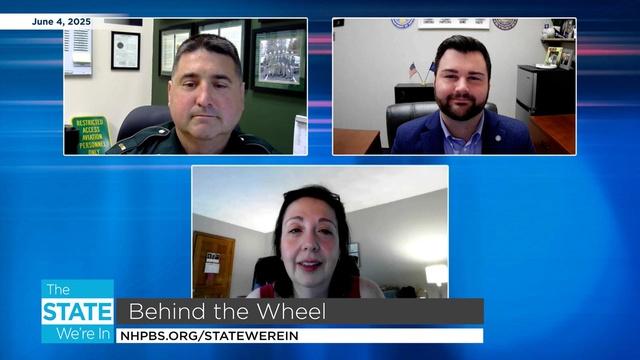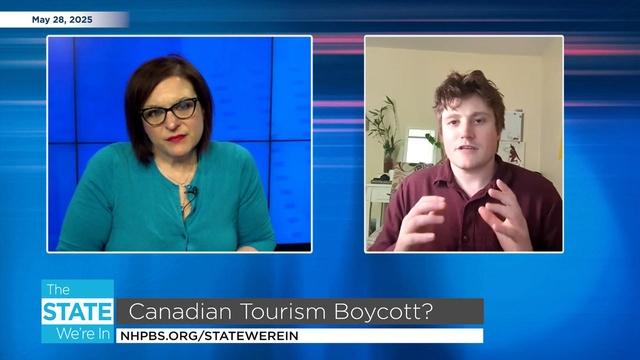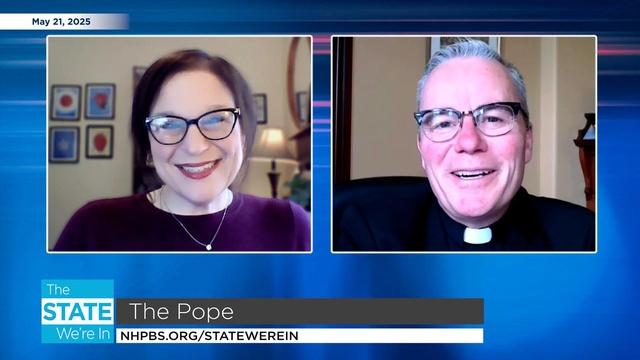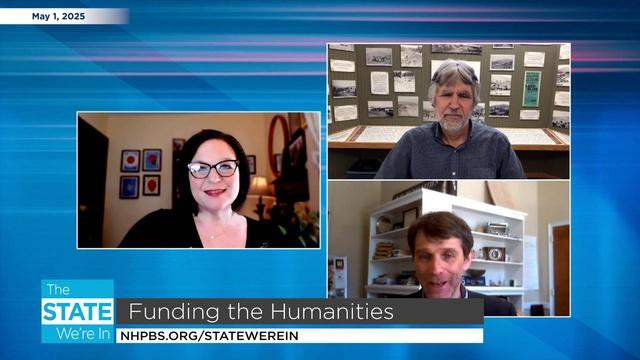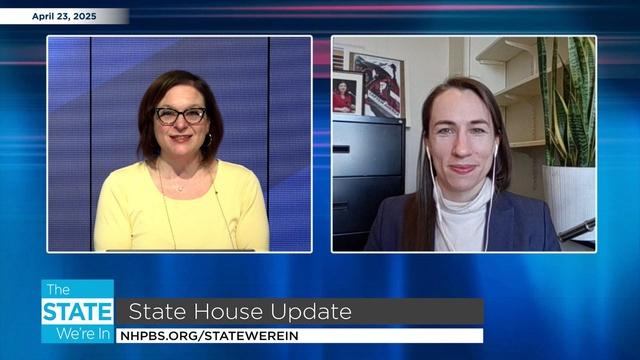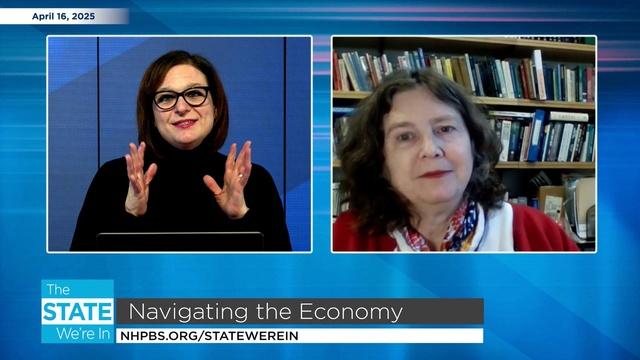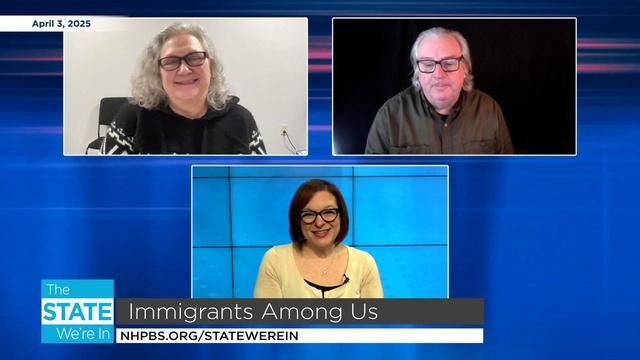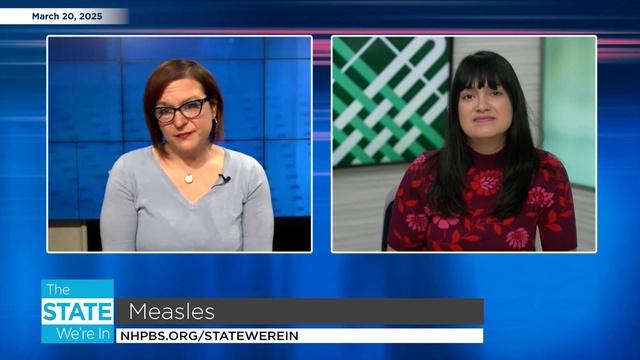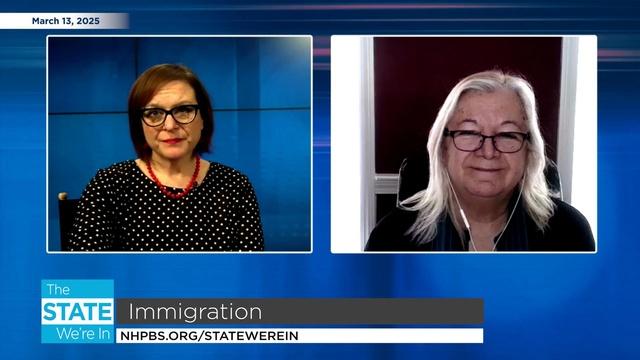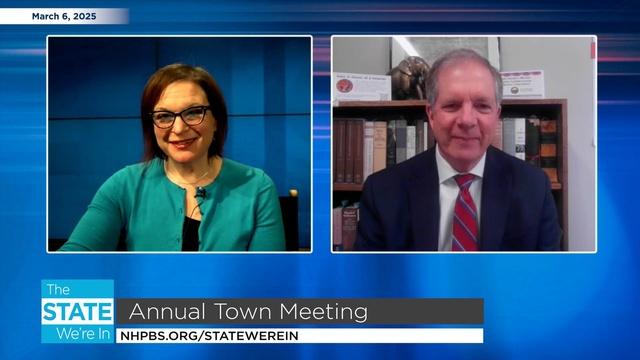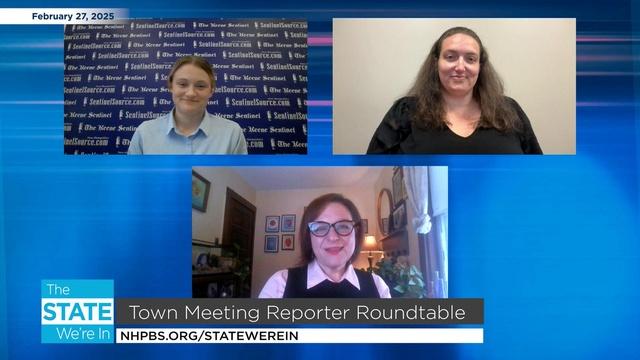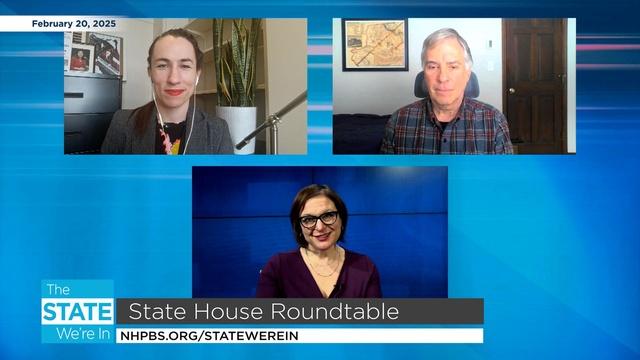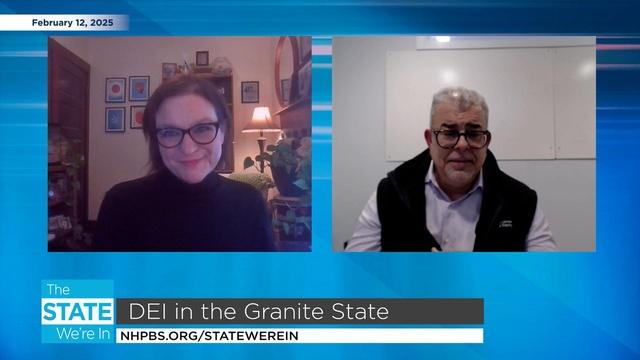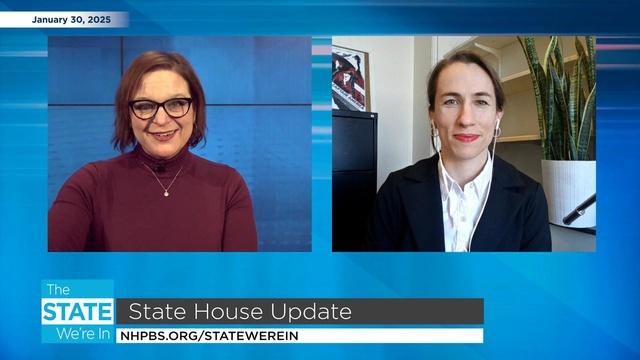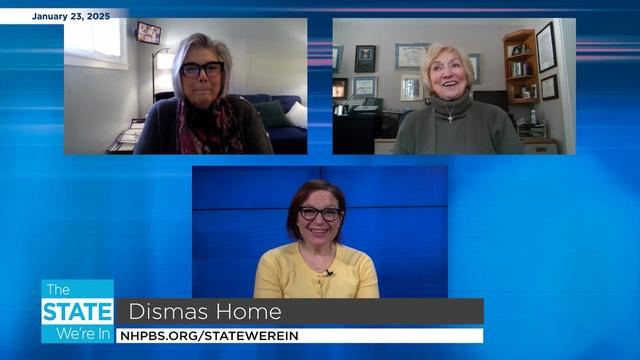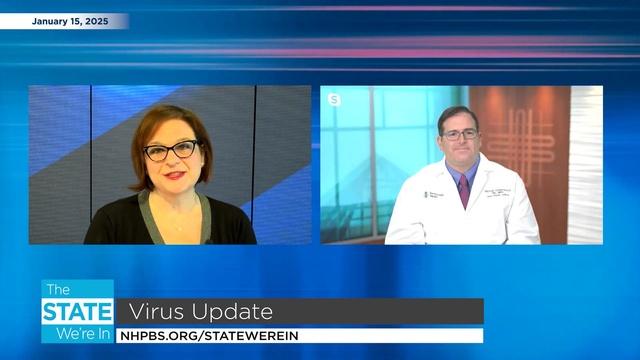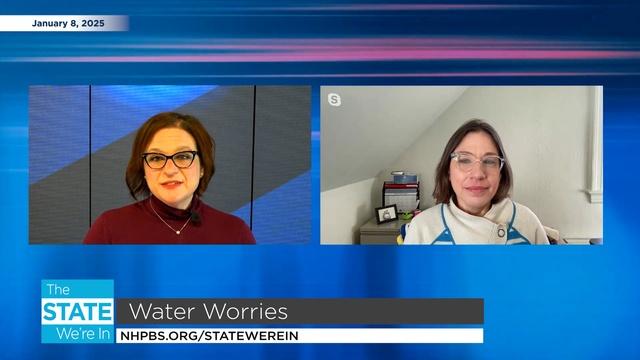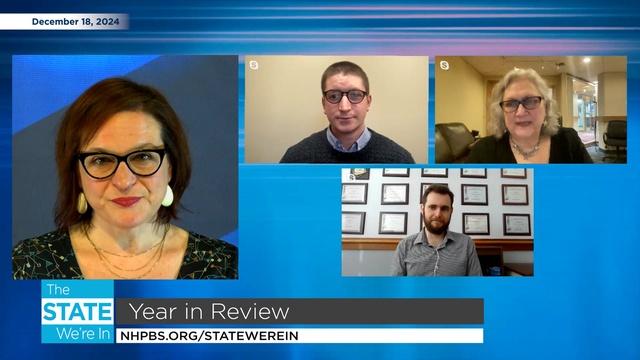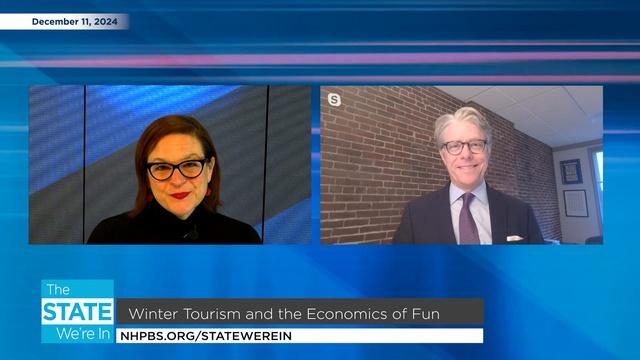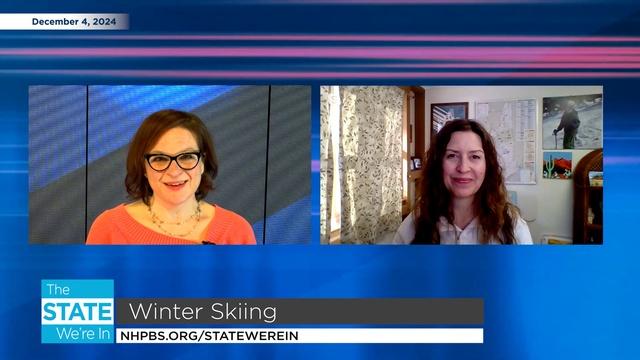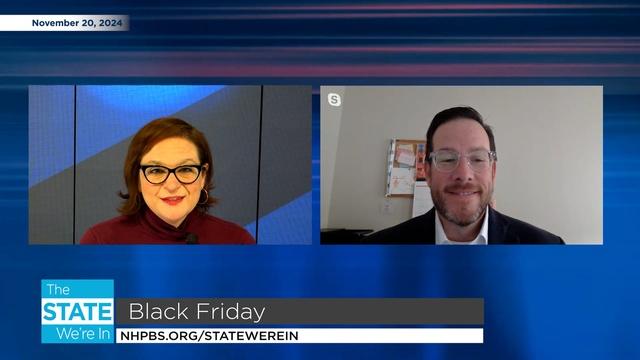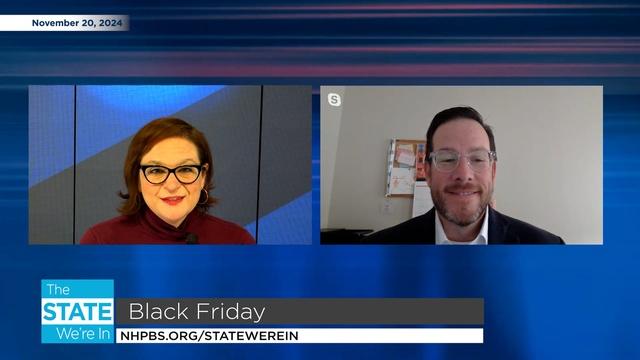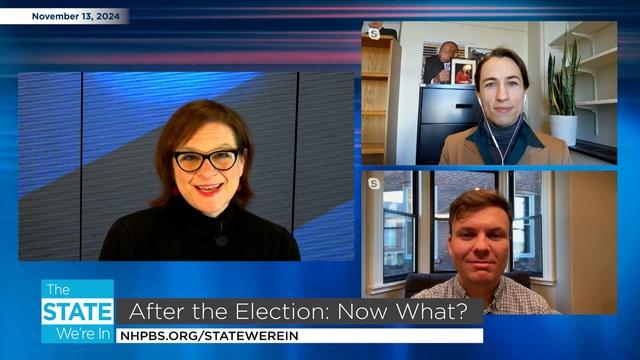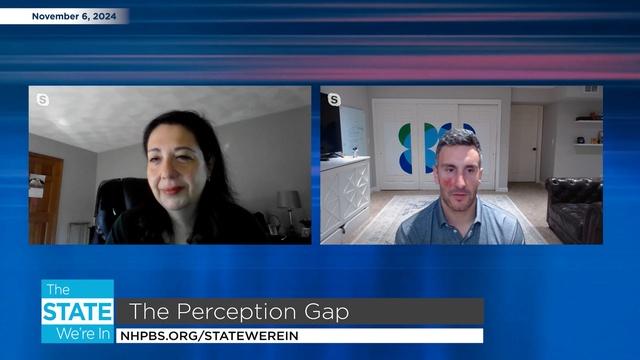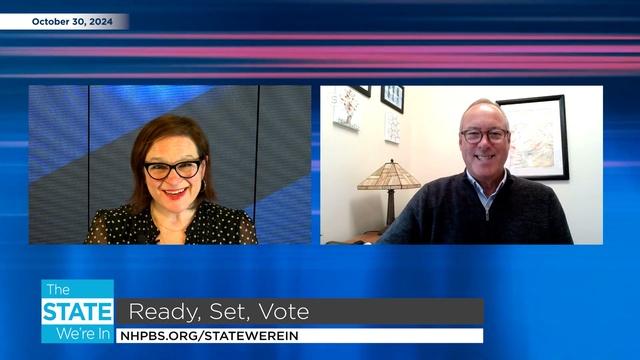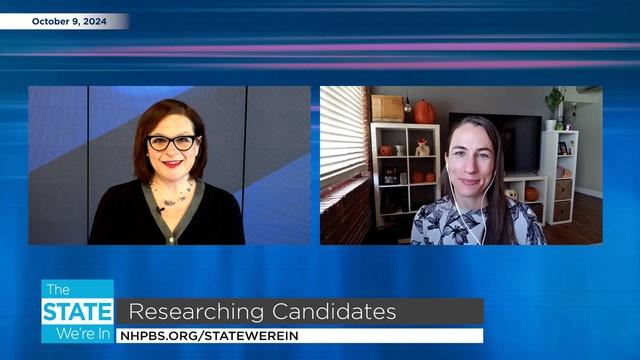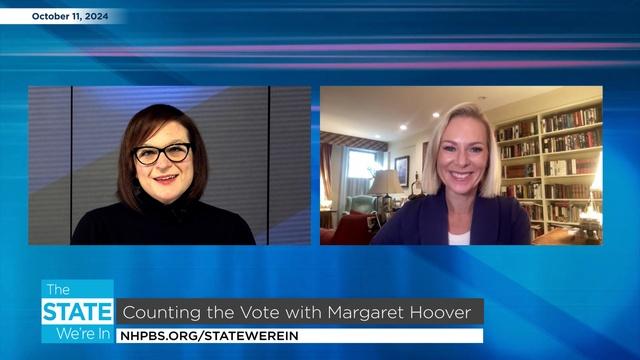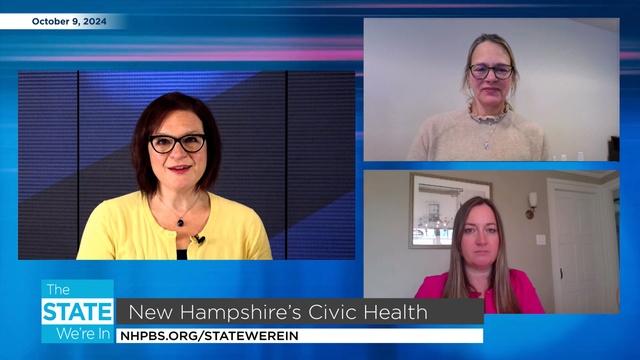Back to School with NH Ed Commissioner Frank Edelblut
Q & A Transcript
GSNC/NHPBS
This content has been edited for length and clarity. Watch the full episode of NH PBS's The State We’re In.
The upcoming return to school for New Hampshire marks the third school year impacted by COVID-19. While students are eager to return to in-person learning, a lot of questions remain in these until certain times. Frank Edelblut, Commissioner of the New Hampshire Department of Education, shares his guidance on the return to school and answers pressing questions.
Melanie Plenda: Let's talk a little bit about the importance for New Hampshire students to be able to return to traditional in-person schooling.
Frank Edelblut: We got a lot of data last year around how students were performing and how they were doing throughout that tenuous time, whether in-person, hybrid or remote. We know that most students do well in an in-person instructional environment. There are a small percentage of students who do well in that remote environment, and those students seemed to like the agency and the autonomy that they're able to exercise. That has helped them quite a bit, even in their mental health areas, but because of the social isolation of students through quarantining or remote instruction, the students have experienced some difficulty as a result.
During that time we've got a preliminary look at our assessment results, not finalized yet, but it looks like the trends from across the country are that in the English Language Arts area, students are pretty much holding their own, and that the academic slippage is going to be mostly isolated to the mathematics area. We've learned a lot, we know it's important for students to be with one another to have those social interactions, and so we're looking forward to getting back in this year.
Melanie Plenda: Have you looked at plans yet to address that slippage in the areas of math or is that not quite focused yet getting through this year?
Frank Edelblut: No, that has been a big part of the work that we've been doing here at the Department of Education, as well as the work that is taking place in our districts. We received a significant amount of federal funding, which is referred to as COVID Response Funding to help us make sure that we're able to fill in the gaps that have resulted as a result of the pandemic. Starting back in the spring, we were already planning for how we could continue to help students make progress both academically. One of the first programs that we rolled out this summer was a program called Rekindling Curiosity. The goal was to allow more students to get to camp. That might seem a little bit strange that we're advocating camp as opposed to an academic program, but the students have had a tough year, they needed some time with their peers. They needed some time to get out and decompress and get themselves excited about learning again; we wanted to make sure that we rekindled that curiosity so that when they showed up in September, they were excited to be back at school with their peers and learning again.
Following on with that, we've invested in technology to make sure that every one of our students has an opportunity to succeed. With the Canvas Learning Management System, we've invested in technology that helps make sure that all of our teachers have the right kind of tools and structure and framework to be able to conduct their classes through a learning management system. This is the kind of system that, while it can be used remotely, is really designed for in-person instruction and making sure that all of the coordination and the activities around that instruction take place.
We then took that tool and we populated it with some resources from an organization called Discovery Education. Discovery Education is a spin-out of Discovery Channel - they have curated all of that Discovery Channel content, as well as content from over a hundred other providers, and made that available and organized it in a way that's very accessible for students and teachers to be able to access. We've eliminated the need to have notes. Every educator in New Hampshire now has a good, solid learning management system platform. Every educator in New Hampshire now has high quality instructional materials that they can integrate into their instructional environment.
We have another program called Yes, Every Student, and one of the aspects of the program is for our students who are in our public schools whose parents may believe that they need some extra tutoring. Through the Yes, Every Student program, we will fund a digital wallet and they can hire a New Hampshire certified educator to be able to provide tutoring services to them. The schools will be doing a lot of work, but we're also putting the tools directly into the hands of parents to help their students.
Melanie Plenda: Shifting a bit, the Massachusetts state Board of Education has just voted to require all public K - 12 students and staff to wear masks at least until early October. Education Commissioner Jeff Riley said the safest path forward is to mask up in schools. The CDC also recommends indoor masking for people age two and older. With so much uncertainty around the Delta variant, what guidance are you giving New Hampshire school districts who are being told they need to make their own decisions about regulating masks and safety protocols?
Frank Edelblut: I actually had breakfast with Jeff Riley yesterday before he went and did that press conference, so we had lots of conversation around that particular policy and what that looks like both in Massachusetts and in New Hampshire. One of the things that I make sure that I emphasize when we think about how to conduct safe instruction is the idea of a layered approach, and we've talked about this many different times. It is not one single mitigating strategy that is going to allow us to be successful; for example, we know about vaccines and how we can help to encourage vaccination status for those families where that is appropriate.
We also know the importance of keeping sick children out of our learning environment. That is probably one of the most important mitigating factors we can do. We know that if a sick child stays home and doesn't come to school, they are not going to be infecting their classmates, so that would be a mitigating strategy that is eminently important. We know about social distancing, we understand about cohorting, and we understand about masking. Where we have to be careful not to imagine that one particular mitigating factor is going to solve the problem for the whole state, we have to recognize the great degree of variation we have in our different learning environments.
If I were to go to one of my more urban elementary schools, as an example, they may have very low vaccination rates in their community. Maybe in one of my districts that has higher vaccination rates than the same urban elementary school, you may find that they don't have the capacity or the ability to socially distance themselves in that particular learning environment. Maybe in one of my other school districts, even when the building is full, they have the ability to socially distance themselves. In terms of parental screening, we may find some school districts have been able to implement that in a way that families are very diligent and focused in terms of trying to make sure they're screening their children and other communities. You really need to look at all of these mitigating factors in totality and craft a safe reopening plan for your community, and not assume that a singular policy across the state is going to make the difference in terms of how that plays out.
Melanie Plenda: Do you foresee having to go back to that hybrid model? Do you think that will happen this year? What are you looking out for in that regard?
Frank Edelblut: We do not anticipate that and, even working with public health, much of the guidance has changed. I understand everybody's looking at this and imagining that this is like last year, but it's not. What we will be doing in our education environment is students who are sick, we're going to ask them to stay out of that environment. Whether they have COVID or not, we are not in a circumstance now where we will be quarantining those individuals who are close contacts, or those individuals who are also in that classroom; we will have continuing instruction in that learning environment, and we will ask everyone to continue to monitor themselves for any types of symptoms. If they become symptomatic, whatever the illness is, we're going to ask them to exclude themselves from that learning environment. If you're living with someone who has COVID, the public health guidance around that is that you'll be quarantining. Otherwise we don't expect to see the significant disruptions to our instructional model this year that we experienced last year.
Melanie Plenda: A lot of accommodations were made over the last year to help students access proper nutrition while at home or in hybrid learning. Will there be similar accommodations?
Frank Edelblut: We should all be proud of the job that our food service personnel did this last year. They served, I think, over 5 million additional meals through that process; they did an incredible job. As we return to school, we imagine that we are returning to our new normal food programs; we have a variety of programs that support students who need financial support for food. We don't see the need to have the additional food programming that we had to have last year when the instruction was so disruptive.
These articles are being shared by partners in The Granite State News Collaborative. For more information visit collaborativenh.org.
Watch Online
Return to the
The State We're In
Main Page
Support for The State We're In is provided by New Hampshire Charitable Foundation
The State We're In is produced in partnership with the Granite State News Collaborative and the students and staff of the Marlin Fitzwater Center for Communication at Franklin Pierce Unversity in Rindge, NH.
